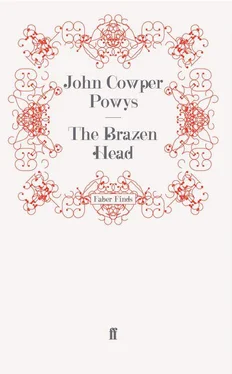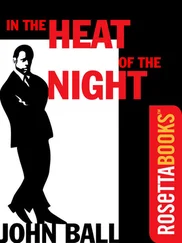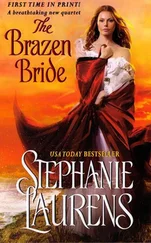Not for nothing had Albertus been an active bishop for a couple of years. By his use-and-wont contacts under such conditions with all sorts of people he had developed, to a degree unusual in such a speculative thinker, an awareness of the thoughts and feelings of the people that surrounded him, or that at any moment accompanied him, or that happened to be listening to him.
From boyhood he had been a naturalist, and by this time he knew much more about birds and beasts and insects than any other thinker of that epoch who was proficient in Greek and Latin.
At this moment as he encountered the earnest faces round him and noted the almost distressed look in the long thin countenance of Raymond de Laon, a countenance that already bore more wrinkles between the eyebrows than seemed natural for so handsome and diplomatic a youth, he suddenly caught sight of a butterfly he had come to name a “Wood Argus” because of the markings on its wings, that now had settled, since this group of two-legged monsters seemed inclined to be quiescent, on a little poplar-twig just above a regular bed of bluebells.
A particularly brilliant ray of June sunshine was at that second turning into a shining little arrow-head of gleaming silver the white stalk of one of these flowers, and as he watched it, Albert of Cologne couldn’t help wondering whether this particular “Wood-Argus” came regularly at this particular hour to this particular spot.
In a small leafy grove just outside Cologne he had frequently constituted himself a patient and watchful sentinel of whatever light-winged butterfly-emperor ruled that forest-glade, a sentinel big enough to ward off any feathered freebooter, who might come sweeping down through the fragrant air-gulfs of the noon-heat, with the deliberate intention of snapping up so divine a mouthful.
He now had the experience and the wit to see clearly that by his reference to the self-creative energy of the “Hulee”, or “raw-material” or “formless timber”, as Homer might have called it, out of which the world is made, he had touched an extremely ticklish subject, in fact the subject of all subjects, he now told himself, about which, in connection with Friar Roger, the intelligent minority was most hotly divided.
“I must be careful,” he thought. “O how mixed up, how cruelly mixed up with our personal prejudices, is every exciting topic we touch!”
And then, when it must have been clear to them all that he was longing to say something that was very important to himself, but found it hard to get the right words for it, his eyes were caught by the largest of a few dark holes in the ground in front of him, obviously caused by the cloven hooves of some wandering steer or heifer, and which had been filled with water by last night’s rain. Upon this small black pool, in his effort to decide what it would be best to say, he was now fixedly staring. As he stared, he suddenly grew aware that the mid-day Sun was also busy with this hand’s-breadth of dark water, and that he was now staring into his own reflected visage, above which his complicated head-wear had already become among the bluebells a portentously hovering shadow.
“ What place is left for a Creator ?” was now the question which the mind behind that bulging forehead, those quivering nostrils, those small deep-set tearful eyes, had to answer; and as, aware of that attentive group of men, and of that more than attentive young lover, the great teacher from Cologne struggled with the riddle of existence, he felt as if this floating “something” that was himself, now confronted by this likeness of a not very striking human face in the wet hoof-print of an animal, was being carried, just as that reflected face looked as if it were being carried, up, up, up, through all Space and all Time, searching for the thrice-blessed gulf of absolute nothingness that is beyond all that has a name.
At last the words came. “There are some of us,” he said, speaking slowly, and beneath and against and under, so it felt to him, the warm breath of every star in the firmament, “who hold that all the ideal words that we philosophers use, such as ‘matter’ and ‘substance’ and ‘form’ and ‘essence’ and ‘finite’ and ‘infinite’ and ‘transitory’ and ‘eternal’ and ‘nature’ and ‘super-nature’ are only so many names, sounding syllables that signify nothing. Others hold that these words represent ultimate and basic realities by the use of which we recognize and interpret the Entelecheia of existence, that would be just meaningless smoke without them!
“Now what I hold, my dear friends, is especially difficult to make clear because it partakes of the opposite opinions of both those two camps of thought. I do hold, as strongly and as absolutely as it is possible to hold anything, that behind all the visible and intelligible phenomena of the cosmos there exists the invisible and unintelligible reality which we call God.
“According to the philosophy of the greatest of all philosophers — I speak of Aristotle — the material stuff of which the Cosmos is composed is eternal, and contains within itself the creative energy that builds the world and produces all the innumerable lives around us, such as we know and such as we are. But we Christians have been given a — a—a—”
Here he hesitated and a very queer sound came from his body as he stood there before them, like a great black rook come down from a nest that a quarter of a year ago has served its purpose to the limit and now awaits its dissolution, a sound that might have been an explosion of wind, either from mouth or from anus, but a sound that resembled the cry of an unborn child, that with the permission of nature had been engendered in the duodenum of an elderly man by deliberate impregnation from a superhuman minotaur—“have been given a — a Revelation that alters from top to bottom the whole situation.”
Here his voice rose just as used to rise the voice of each of the Homeric heroes at some special crisis in the Trojan War. “We cannot, we dare not, we must not, lest we become the murderers of the truth that is in us, deny the integrity of our own reason. And if we accept our reason we must recognize that the deepest, wisest, completest embodiment of it, so far, and until this moment, is to be found in the works of Aristotle; and Aristotle maintains that since matter is eternal in its inherent essence and is capable, in itself and by its own secret energy, of renewing the universe, and of bringing into existence an everlasting recurrence of the multiple forms we see around us, we are driven by our reason to assume that the cosmos is eternal. But this whole assumption, this whole implication, this whole conclusion is surpassed and transcended”—Albert’s voice became the voice of a trumpet—“by the Revelation brought by Christ, the revelation of Christ Himself and the revelation of the Holy Spirit!”
The warrior-retainers from Cone Castle were so accustomed to associate any reference, in any formal service of worship, to the Holy Ghost, as a sign that this same service had reached its termination, that now they all solemnly and mechanically, just as in some ordinary daily ceremonial, lowered one knee to the earth, and then, standing erect, murmured the word “amen”.
Albert of Cologne would never have become what undoubtedly he had, by the pure power of his intrinsic personality, quite deservedly become, the best philosophical teacher in Europe, if he hadn’t long ago acquired the power of not losing his temper, or the thread of his discourse, or even his own zest for the subject, when the bulk of his audience missed the whole point, as they certainly did now.
The grand trick he had acquired was a very daring one, and one whose nature would have been extremely shocking to many pious souls, namely the device of treating the words of Jesus, on almost all the well-known occasions when the Master uttered decisive and pregnant announcements, as if they contained in them, however tragic they might be, a peculiar element of sheer humour.
Читать дальше











